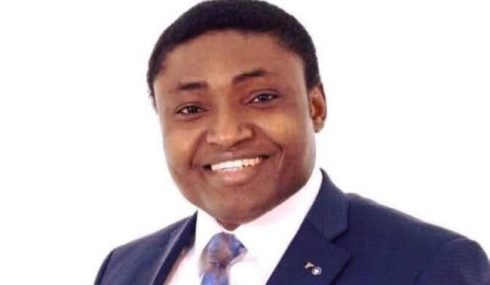Simon Ekpa, a prominent Nigerian-Finnish activist and self-proclaimed advocate of Biafra’s secession, appeared before a Finland court to clarify his stance on his controversial designation as the “Prime Minister of Biafra.” Simon Ekpa, who has garnered attention for his divisive rhetoric and online activism, stated that the title was more of a symbolic gesture than a serious political role.
During the hearing, Simon Ekpa emphasized that his primary identity is that of a content creator and not a political leader. He argued that the label of “Prime Minister” has been sensationalized, asserting that his activities are primarily aimed at raising awareness for Biafran independence rather than spearheading a government-in-exile.
Online Activism and the Biafran Struggle
Simon Ekpa’s declaration underscores the growing influence of digital platforms in political discourse. As a YouTuber and social media personality, he has used his channels to advocate for the secession of the southeastern region of Nigeria. His broadcasts often address the grievances of the Igbo ethnic group, alleging marginalization under the Nigerian government.
Despite his claims of being a mere content creator, critics argue that Simon Ekpa’s rhetoric has inspired unrest in Nigeria. Security agencies have linked his broadcasts to violent incidents in the region, including disruptions of elections and attacks on government institutions. This has led to increased scrutiny of his activities by both Nigerian authorities and the Finnish government.
Court Proceedings Address Accusations of Incitement
The hearing also examined allegations that Simon Ekpa’s statements have incited violence in Nigeria. Finnish authorities have been investigating whether his broadcasts violate Finland’s laws on hate speech and incitement. Simon Ekpa denied any intent to provoke unrest, reiterating that his content is designed to inform and inspire dialogue rather than incite violence.
Prosecutors, however, presented evidence linking his statements to incidents of violence in Nigeria, arguing that his influence extends beyond digital advocacy. They contended that his broadcasts amount to calls for insurrection, further complicating his claims of being a non-political figure.
Nigeria-Finland Diplomatic Implications
Simon Ekpa’s activities have also strained diplomatic relations between Nigeria and Finland. The Nigerian government has repeatedly called on Finland to take decisive action against Simon Ekpa, accusing him of destabilizing the country from abroad. In response, Finnish authorities have emphasized their commitment to due process, ensuring that any action taken complies with both domestic and international law.
Observers note that the case raises important questions about the responsibilities of host countries in regulating the actions of political activists operating from their territories. Finland’s handling of the case could set a precedent for addressing similar disputes in the future.
Simon Ekpa’s Defense: Freedom of Speech or Overreach?
Simon Ekpa’s defense team has framed the case as a test of Finland’s commitment to free speech. They argue that his broadcasts, while controversial, fall within the bounds of protected expression under Finnish law. His lawyers also highlighted the cultural and historical context of the Biafran struggle, urging the court to consider the complexities of his advocacy.
Critics, however, contend that free speech should not shield actions that have real-world consequences. They argue that Simon Ekpa’s rhetoric has fueled tensions in Nigeria, undermining efforts to achieve peace and stability in the region. This clash of perspectives remains a central issue in the case.
A Controversial Figure at the Crossroads
Simon Ekpa’s legal battle in Finland shines a spotlight on the intersection of activism, digital influence, and international law. While he maintains that his title as the “Prime Minister of Biafra” is not a serious political claim, the implications of his actions suggest otherwise.
The outcome of this case could have far-reaching consequences for how governments address the activities of activists operating abroad. For now, Simon Ekpa remains a polarizing figure, with supporters hailing him as a freedom fighter and critics accusing him of inciting division and unrest. The court’s decision is eagerly awaited, with the potential to shape the future of transnational activism.
Table of Contents
Discover more from OGM News NG
Subscribe to get the latest posts sent to your email.














